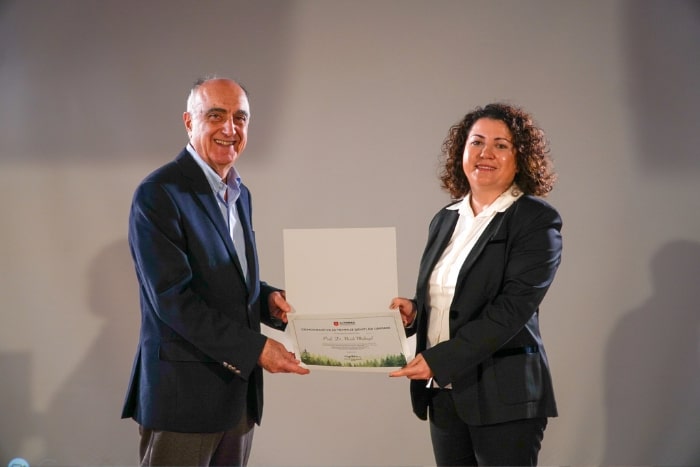How Will the World Feed a Population of 10 Billion by 2050?
How Will the World Feed a Population of 10 Billion by 2050? was discussed at the Altınbaş University Department of Gastronomy and Culinary Arts.

In the face of rapid population growth, sustainability will become even more crucial for achieving sufficient food access in the future. The seminar "Sustainability, Future of Food, and Gastronomy" at Altınbaş University's Department of Gastronomy and Culinary Arts explored answers to how the world will feed a population of 10 billion by 2050 and emphasized measures that can be taken.
Altınbaş University's Department of Gastronomy and Culinary Arts organized a seminar titled "Sustainability, Future of Food, and Gastronomy." In this seminar moderated by Assoc. Prof. Dr. Özge Seçmeler, Prof. Dr. Nezih Besim Müftügil made significant observations regarding the sustainability of food.
Prof. Dr. Nezih Besim Müftügil, who also serves as a consultant for Turkish DO&CO, highlighted the significant amount of waste in the production-consumption process in the food chain, pointing out that according to United Nations data, one-third of the world's produced food goes to waste before being consumed.
Stating that in Turkey, food losses range between 25-40% depending on the type of food, Prof. Dr. Nezih Besim Müftügil emphasized the need for significant changes throughout the entire food chain process according to the sustainability approach to minimize these losses. He stressed the importance of addressing these losses to preserve the hard-to-obtain food.
Prof. Dr. Nezih Besim Müftügil, noting the rapid development of the gastronomy sector in Turkey, mentioned that the sector has the capacity to serve 22 million people daily and can accommodate more than 60 million foreign tourists annually, growing at a rate of 10-15% each year. He pointed out that such a vast sector is affected by the global warming of the food chain defined as "from soil to table." Additionally, agricultural activities contribute to 25% of greenhouse gas emissions, which lead to global climate change.
Discussing the impact of industrialization in the last 100 years, especially the use of coal, petroleum products, natural gas, and fossil fuels for energy production in developed countries, Prof. Dr. Müftügil explained how environmental pollution caused by these sources affects food production efficiency today. He mentioned that the use of fossil fuels leads to the formation of greenhouse gases in the atmosphere, causing an increase in temperature, posing a vital threat to humanity with challenges such as global warming.
Prof. Dr. Nezih Besim Müftügil emphasized that sustainability is now a global survival issue, outlining what the gastronomy sector needs to do. He said:
"The journey of gastronomy from soil to table must be conducted according to sustainability principles at every stage from now on. Two trends stand out for this. The first is to shift towards healthy food, especially plant-based nutrition. The other is to reduce waste and prevent waste in gastronomy establishments. These approaches shaped by sustainability will contribute to the widespread and consolidation of the perception of 'sustainable gastronomy' in the sector."

